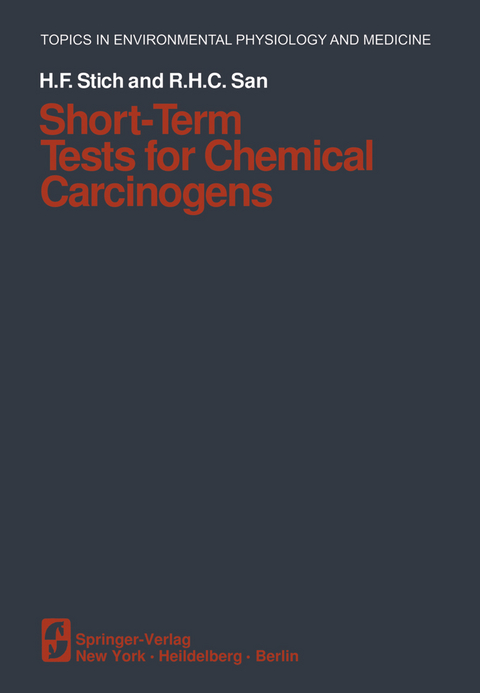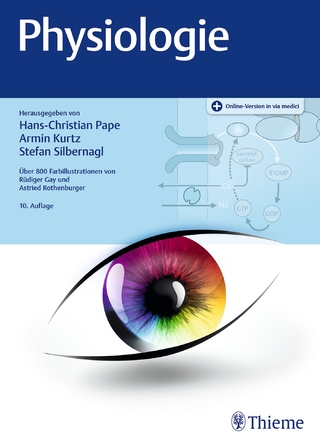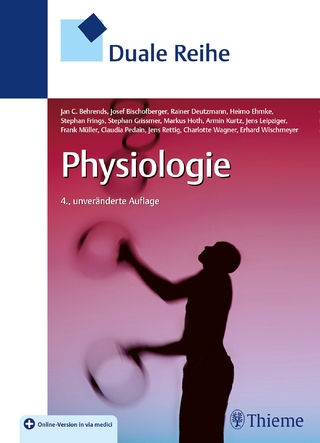
Short-Term Tests for Chemical Carcinogens
Springer-Verlag New York Inc.
978-1-4612-5849-0 (ISBN)
Viral Systems.- 1. A Biochemical Phage Induction Assay for Carcinogens.- 2. Detection of DNA-Modifying Agents by Analyzing the Lesions Introduced into Purified PM2 DNA.- 3. Reactivation of Viruses.- DNA.- 4. Metabolic Activation of Nitroheterocyclic Compounds in Bacteria and Mammalian Cells.- 5. Utilization of the Alkaline Elution Assay as a Short-Term Test for Chemical Carcinogens.- 6. DNA Synthesis Inhibition in Mammalian Cells as a Test for Mutagenic Carcinogens.- 7. DNA Repair Synthesis (UDS) as an in vitro and in vivo Bioassay to Detect Precarcinogens, Ultimate Carcinogens, and Organotropic Carcinogens.- 8. Multi-well Assay for Unscheduled DNA Synthesis Using Human Diploid Fibroblasts.- 9. Sucrose Gradients: An Assay for DNA Damage.- 10. The Testicular DNA-Synthesis Inhibition Test (DSI Test).- Microbial Systems.- 11. The Salmonella Mutagenicity Test: An Overview.- 12. Applications of the Salmonella/Microsome Assay.- 13. Determination of Genotoxic Activity Using DNA Polymerase-Deficient and -Proficient E. coli.- 14. The Nucleotide-Permeable Escherichia coli: A Model System that Responds to DNA-Binding Carcinogens, Mutagens, and Antitumor Agents with DNA Excision Repair or with Inhibition of Replicative DNA Synthesis.- 15. The Yeast Saccharomyces cerevisiae: An Assay Organism for Environmental Mutagens.- 16. Induction and Genetic Characterization of Specific Locus Mutagens in the ad-3 Region in Two-Component Heterokaryons of Neurospora crassa.- 17. Neurospora and Environmentally Induced Aneuploidy.- Higher Plants.- 18. Plant Genetic Test Systems for the Detection of Chemical Mutagens.- Chromosomes.- 19. A Short-Term Cytogenetic Test for Genetic Instability in Humans.- 20. The Sister Chromatid Exchange Test.- 21. The Micronucleus Assay. I. In Vivo.- 22. The Micronucleus Assay. II. In Vitro.- 23. Automation in Cytogenetics.- Mammalian Systems.- 24. Mutagenesis Studies in Diploid Human Cells with Different DNA-Repair Capacities.- 25. Liver Culture Indicators for the Detection of Chemical Carcinogens.- 26. An Escherichia coli Differential Killing Test for Carcinogens Based on a uvrA recA lexA Triple Mutant.- 27. Detection of Carcinogens Using the Fluctuation Test with S9 or with Hepatocyte Activation.- Transformation.- 28. In Vitro Mammalian Cell Transformation for Identification of Carcinogens, Cocarcinogens, and Anticarcinogens.- 29. The Use of Cryopreserved Syrian Hamster Embryo Cells in a Transformation Test for Detecting Chemical Carcinogens.- 30. Assay of Chemically Induced Transformation of Human Cells.- 31. Chemical-Viral Interactions: Enhancement of Viral Transformation by Chemical Carcinogens.- 32. The Calcium Independence of Neoplastic Cell Proliferation: A Promising Tool for Carcinogen Detection.- Entire Animals.- 33. Induction of a Resistant Preneoplastic Liver Cell as a New Principle for a Short-Term Assay in vivo for Carcinogens.- 34. Recent Achievements with Drosophila as an Assay System for Carcinogens.- 35. Strategy for Breeding Test Animals of High Susceptibility to Carcinogens.- 36. Methods for Human and Murine Sperm Assays.- Cocarcinogens, Anticarcinogens, and Promoters.- 37. In vitro Assay for Tumor Promoters.- 38. Inhibition of Chemical Mutagenesis: An Application of Chromosome Aberration and DNA Synthesis Assays Using Cultured Mammalian Cells.- 39. Detection of Cocarcinogens and Anticarcinogens with Microbial Mutagenicity Assays.- 40. The Use of A Bacterial Assay to Identify Which Agents Modify Carcinogen-Induced Mutagenesis.- Concepts.- 41. Quantitative Measures of Induced Mutagenesis.- 42. Tests for PotentialCarcinogens: Unresolved Problems.- 43. Mutagenicity Testing: Problems in Application.- 44. Short-Term Genetic Tests Extended to the Human.
| Reihe/Serie | Topics in Environmental Physiology and Medicine |
|---|---|
| Zusatzinfo | 518 p. |
| Verlagsort | New York, NY |
| Sprache | englisch |
| Maße | 178 x 254 mm |
| Themenwelt | Sachbuch/Ratgeber ► Natur / Technik ► Garten |
| Medizin / Pharmazie ► Medizinische Fachgebiete ► Onkologie | |
| Studium ► 1. Studienabschnitt (Vorklinik) ► Physiologie | |
| Naturwissenschaften ► Biologie ► Biochemie | |
| Schlagworte | Krebserregender Stoff • Mutagene • Mutation |
| ISBN-10 | 1-4612-5849-9 / 1461258499 |
| ISBN-13 | 978-1-4612-5849-0 / 9781461258490 |
| Zustand | Neuware |
| Informationen gemäß Produktsicherheitsverordnung (GPSR) | |
| Haben Sie eine Frage zum Produkt? |
aus dem Bereich


